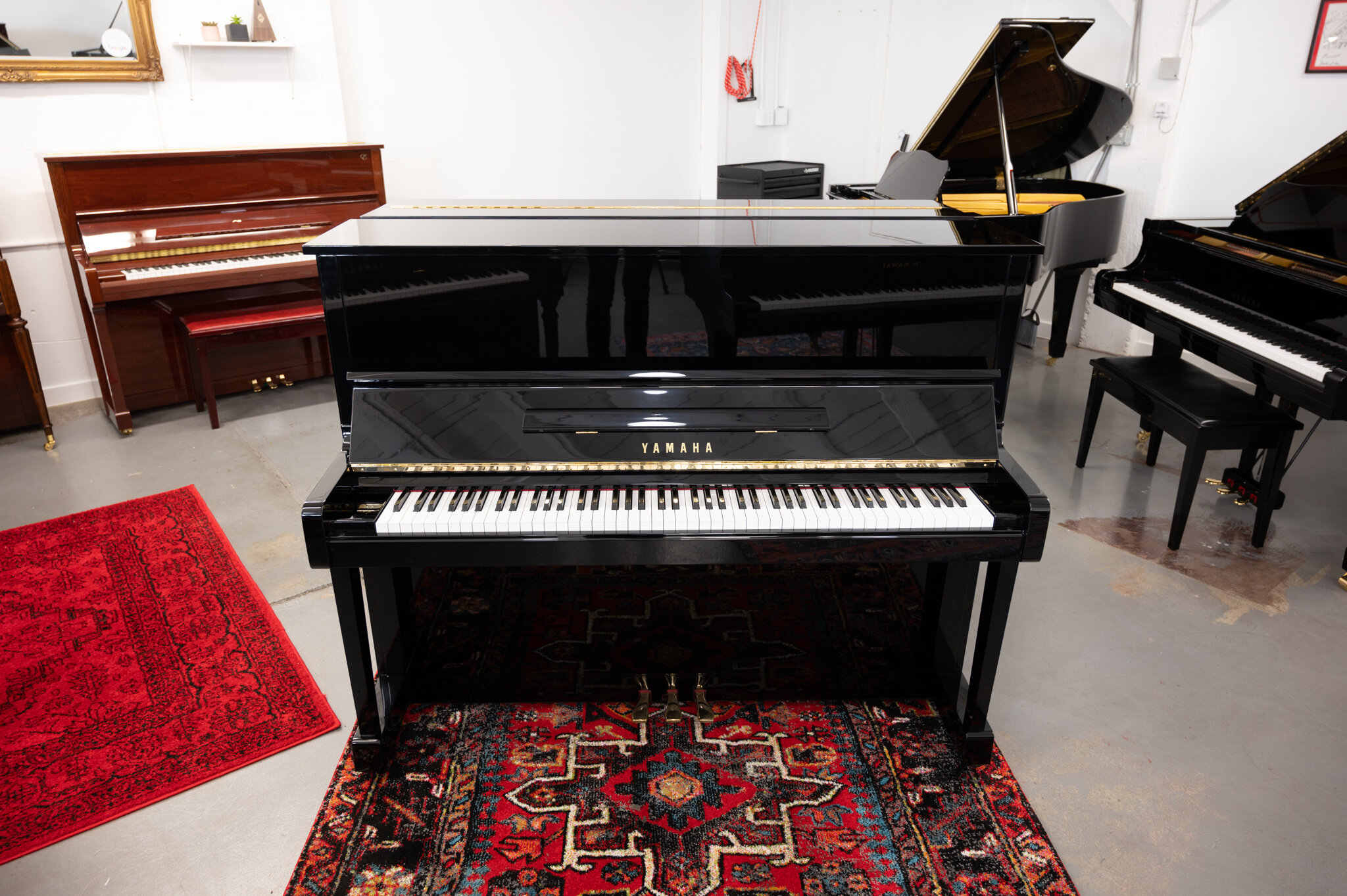Why buy a (used) Yamaha piano?
A brief overview of the comparison of new vs used Yamaha pianos.
What makes a piano great I suppose, is a subjective opinion.
What is not subjective however, are the millions of piano players who love the feel and tone of Yamaha pianos.
Every piano manufacturer produces instruments that are unique in the way that they sound and feel.
Great pianos can provide the player an experience of joy and inspiration, poorly made or poorly designed pianos can leave the experience a little underwhelming. Lacking a tone of substance and an underperforming keytouch can be very frustrating to the aspiring piano player. When playing a Yamaha piano, it is clear that Yamaha is one of those great piano manufacturers.
Japanese craftsmanship is often depicted as an artform, practiced with heart and extreme discipline.
The result of this effort results in products of superior quality.
This notion of Japanese craftsmanship is nowhere better represented than with Yamaha pianos.
At this point in my career, I have torn down and rebuilt or refurbished over a thousand pianos.
There have been hundreds of piano makers that have gone in and out of production over the last 100 years and I have seen or worked on a vast majority of them.
Few piano brands I have encountered have stacked up the quality of a Yamaha.
When I am refurbishing a Yamaha piano, everything just seems to fall into place.
All of the internal components take adjustment very smoothly and accurately, the finishes always buff out to look brand new, and they are one of the clearest pianos to tune.
This is rarely the case with other manufacturers, and the contrast of materials used in other makers construction is visual. Removing any component from a Yamaha, and comparing it to that of the same component from a lesser quality piano, the contrast in quality is very evident, and in Yamaha’s favor.
Yamaha’s return on investment.
New pianos are expensive, all of them.
There are some manufacturers that produce pianos as inexpensively as they can so that they can then sell them for less than the competitors, but the problem with this is that this results in a inferior piano that doesn’t play well, delivers poor tone. When buying a new piano from a budget manufacturer at a low (yet still substantial) price, you ultimately end up with an expensive bad piano that has virtually no resale value.
Yamaha produces multiple piano models to meet multiple price points. While Yamaha produces a line of beginner models, they are still a high quality maker, and that brings with it a high quality maker price tag. Their most entry level upright models start at well over $4,000.
As with most things purchased brand new, pianos depreciate in value as they get older, but the most aggressive portion of the depreciation is just after the piano is purchased.
After a few years, the depreciation schedule levels out, and they begin to retain their remaining value at a much longer and more stable rate.
When it comes to Yamaha, their pianos are among, if not the most sought after piano brand on the used piano market. This puts them near the top when it comes to overall value retention.
So, Why buy a used yamaha?
All things considered, in my opinion, it’s just a smart move.
Used Yamaha pianos, even when a couple of decades old, are still great pianos.
If you purchase one that has been very well taken care of and or refurbished, a used Yamaha piano can be just as enjoyable to play as a new one. With the dramatically lower price tag of a used Yamaha as opposed to new, you can also get a lot more piano for your money.
With a budget of $4,000-$5,000 and the intention of buying new, you would be entering Yamaha’s beginner B1 or B2 model indonesian made uprights (which are still good pianos), but when considering used, that same budget will often get you a professional series U1 or U3 upright. The same goes with their grand pianos. With a budget of $10,000 for a new Yamaha, you will be able to purchase their beginner model 5’ Indonesian made GB1K model which, arguably is the best entry level grand for its price out there, but if you apply that same budget to used, you’ll often be able to find a Conservatory series C1 or a G3 model. Both of which are larger, and made in Japan.
At Seattle Piano Company we refurbish our Yamaha pianos very extensively with a high level of attention to detail in everything involved in the process.
We back all of our pianos with a 5-Year Parts and Labor Warranty, and provide the first in-home tuning for free. We take a lot of pride in what we do, and it shows in our pianos.
If you have any questions (even if you’re not purchasing from us),
please feel free to give us a call. We’d love to hear from you.
“ If you have any questions,
please feel free to give us a call.
We’d love to hear from you. ”
Owner,
Seattle Piano Company
Aaron@SeattlePianoCo.com
206-556-5712



